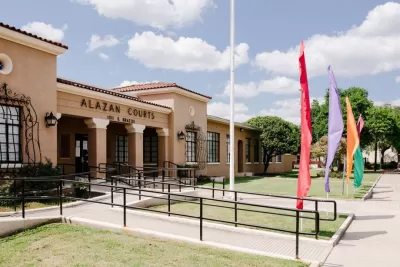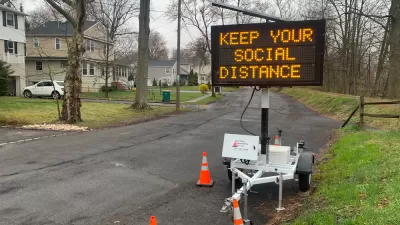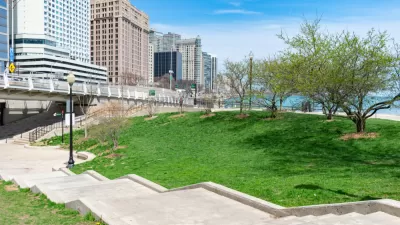The San Antonio Housing Authority has been working for years to replace the Alazán-Apache Courts with mixed-income housing using a tax-credit deal. But that plan is now scrapped in favor of keeping the apartments as public housing.

For the last several years, the San Antonio Housing Authority has been planning a project that would see the Alazán-Apache Courts, the city’s oldest public housing complex, demolished and replaced with mixed-income housing. The plan was controversial for several reasons. Residents feared that they wouldn’t be able to afford to return to the complex after it was rebuilt, and that they wouldn’t be able to find other affordable apartments elsewhere in San Antonio, even with housing vouchers. And some advocates have said that the project could swiftly gentrify San Antonio’s West Side.
Last fall, the National Trust for Historic Preservation listed the Alazán-Apache Courts on its annual list of “most endangered places.” Residents protested the plan as recently as January. Then, after the housing authority’s executive director left for a position in Denver, the authority changed course. Instead of partnering with private developers to redevelop the courts as a mixed-income community, it committed to keeping all of the public-housing units that exist onsite. Most of the units will still be demolished and replaced over time, but the replacement units will be public housing, owned and operated by the housing authority, rather than privately owned apartments rented to voucher holders.
The San Antonio Housing Authority’s interim president and CEO, Ed Hinojosa, Jr., recently spoke with Next City about why the group decided to commit to keeping Alazán-Apache Courts intact as a public housing community, and how attitudes toward public housing are evolving.
FULL STORY: A New Commitment to Public Housing in San Antonio

Study: Maui’s Plan to Convert Vacation Rentals to Long-Term Housing Could Cause Nearly $1 Billion Economic Loss
The plan would reduce visitor accommodation by 25,% resulting in 1,900 jobs lost.

North Texas Transit Leaders Tout Benefits of TOD for Growing Region
At a summit focused on transit-oriented development, policymakers discussed how North Texas’ expanded light rail system can serve as a tool for economic growth.

Alabama: Trump Terminates Settlements for Black Communities Harmed By Raw Sewage
Trump deemed the landmark civil rights agreement “illegal DEI and environmental justice policy.”

How Community Science Connects People, Parks, and Biodiversity
Community science engages people of all backgrounds in documenting local biodiversity, strengthening connections to nature, and contributing to global efforts like the City Nature Challenge to build a more inclusive and resilient future.

Alabama: Trump Terminates Settlements for Black Communities Harmed By Raw Sewage
Trump deemed the landmark civil rights agreement “illegal DEI and environmental justice policy.”

Dear Tesla Driver: “It’s not You, It’s Him.”
Amidst a booming bumper sticker industry, one writer offers solace to those asking, “Does this car make me look fascist?”
Urban Design for Planners 1: Software Tools
This six-course series explores essential urban design concepts using open source software and equips planners with the tools they need to participate fully in the urban design process.
Planning for Universal Design
Learn the tools for implementing Universal Design in planning regulations.
City of Santa Clarita
Ascent Environmental
Institute for Housing and Urban Development Studies (IHS)
City of Grandview
Harvard GSD Executive Education
Toledo-Lucas County Plan Commissions
Salt Lake City
NYU Wagner Graduate School of Public Service





























